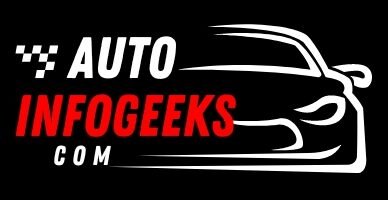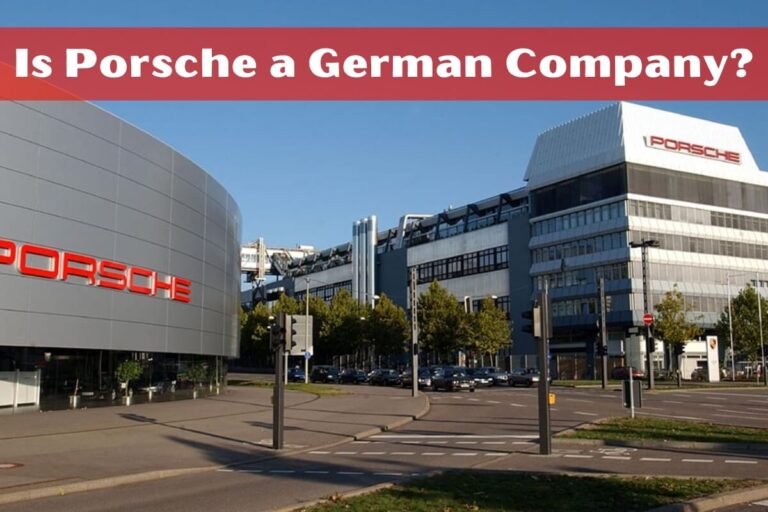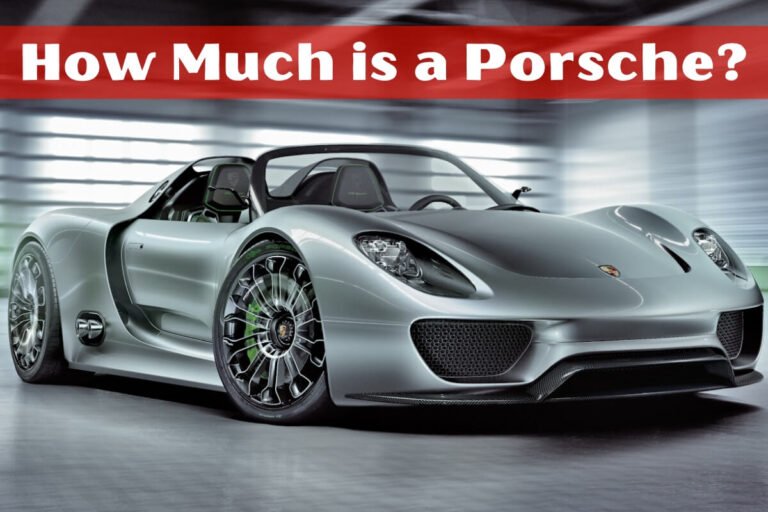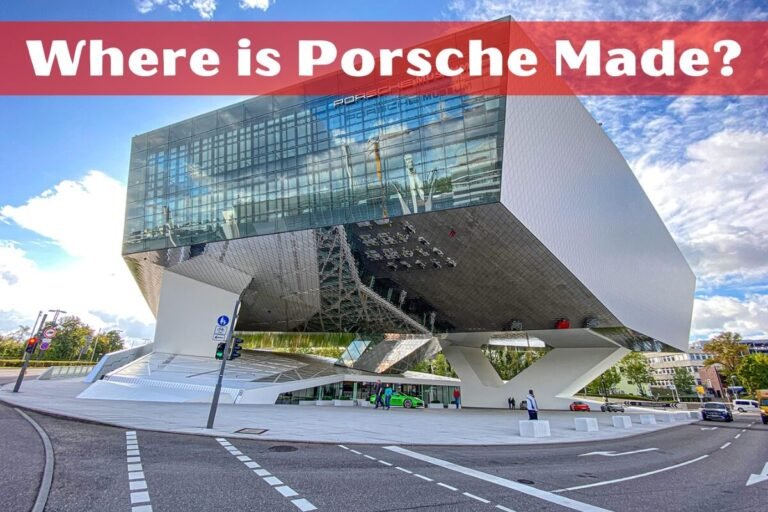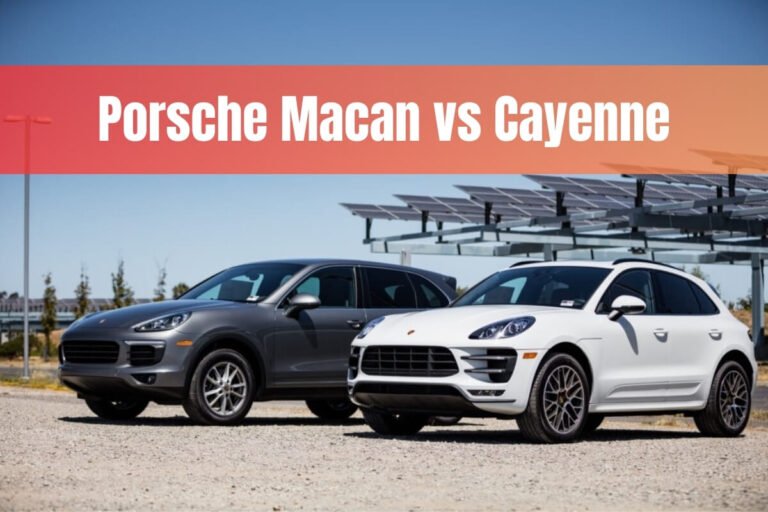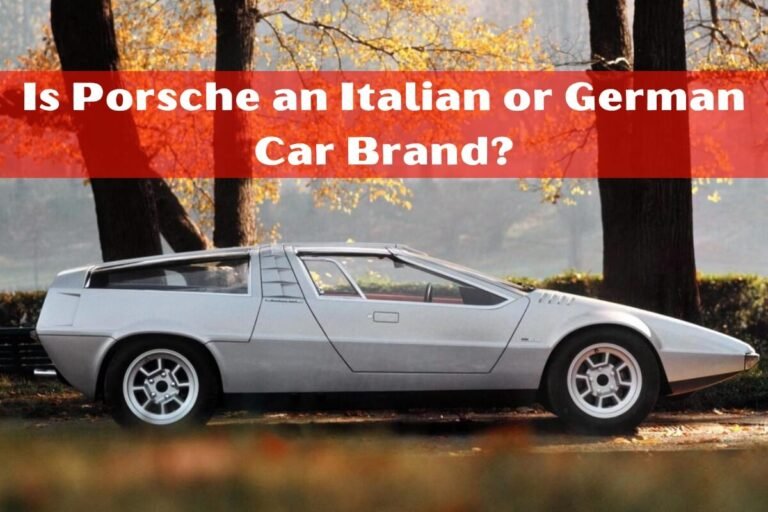Does Volkswagen Own Porsche? Complex Corporate Relationship Explained
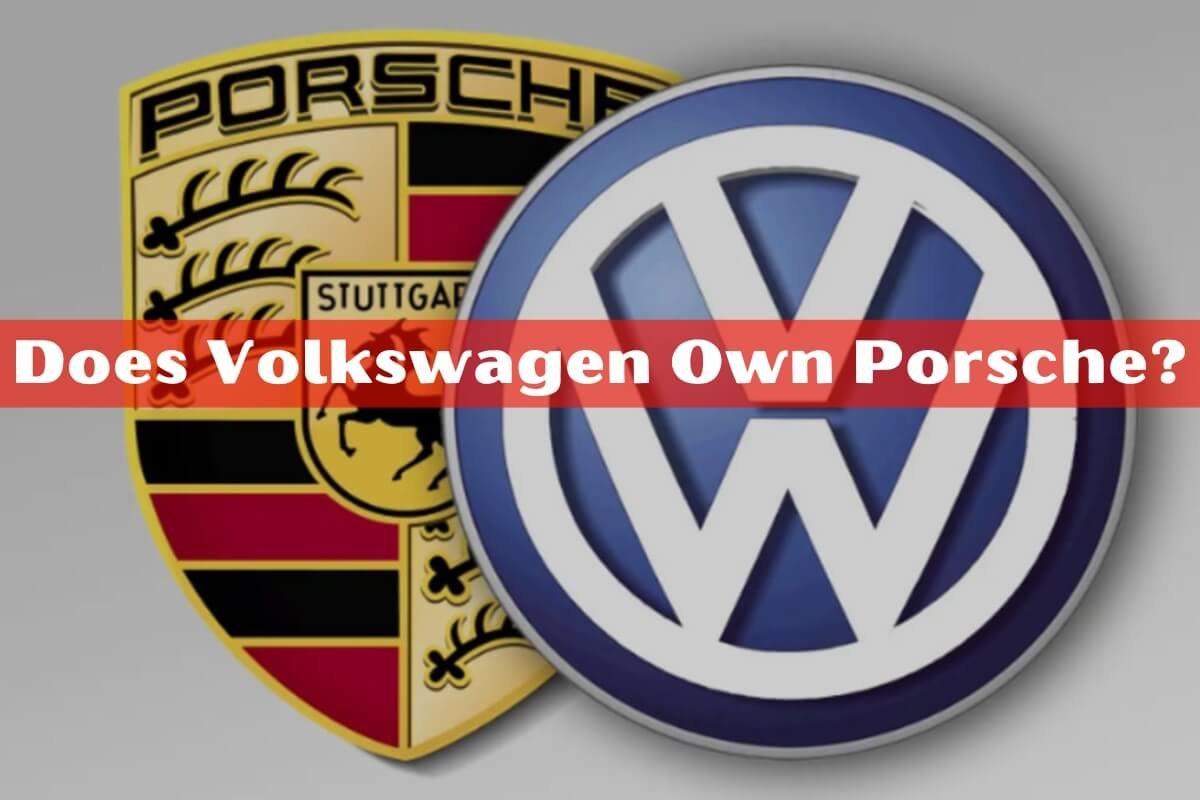
Porsche and Volkswagen are two of the most iconic and prestigious automotive brands in the world. While Porsche is renowned for its high-performance sports cars and luxury vehicles, Volkswagen is a automotive giant with a vast portfolio of brands catering to various segments. The relationship between these two German powerhouses is a complex and intricate one, shaped by decades of corporate maneuvering, acquisitions, and cross-shareholdings.
At first glance, the answer to the question “Does Volkswagen own Porsche?” seems straightforward – yes, Volkswagen does own Porsche. However, the reality is much more nuanced, as Porsche also owns a significant stake in Volkswagen. This unique arrangement has created a fascinating corporate dynamic that blurs the lines between ownership and control.
Learn about the complex relationship between Volkswagen and Porsche. We’ll explore their history, ownership structure, key players, and the advantages and disadvantages of their arrangement. Get insight into one of the most interesting corporate stories in the automotive industry.
Volkswagen’s Acquisition of Porsche
To truly understand the present-day relationship between Volkswagen and Porsche, we must take a step back in time. Porsche was founded in 1931 by the legendary Ferdinand Porsche, initially as a consulting firm for automotive engineering. It wasn’t until after World War II that Porsche began manufacturing its own vehicles, with the iconic Porsche 356 hitting the market in 1948.
Over the next few decades, Porsche established itself as a premier sports car manufacturer, renowned for its engineering prowess and high-performance vehicles like the timeless Porsche 911. However, in the mid-2000s, Porsche embarked on an ambitious plan to acquire a controlling stake in Volkswagen, a company with which it had long-standing collaborative ties.
Porsche’s attempted takeover of Volkswagen, initially seen as a bold move by a relatively small automaker, took an unexpected turn. In a twist of fate, Volkswagen managed to turn the tables and acquired Porsche instead. This occurred through a series of events that unfolded between 2009 and 2012, culminating in Volkswagen’s acquisition of the remaining 50.1% stake in Porsche AG that it didn’t already own.
Key events in this acquisition saga:
- 2009: Porsche SE (the Porsche holding company) and Volkswagen AG reached an agreement for a potential merger, with Volkswagen acquiring an initial 49.9% stake in Porsche AG.
- 2012: Volkswagen AG completed the acquisition of Porsche AG, making it a wholly-owned subsidiary of the Volkswagen Group.
Porsche SE’s Ownership Stake in Volkswagen
While Volkswagen emerged as the parent company after acquiring Porsche AG, the story doesn’t end there. Porsche SE, the holding company controlled by the Porsche-Piëch family, retained a significant ownership stake in Volkswagen Group.
As of today, Porsche SE owns 31.9% of Volkswagen Group’s equity and an impressive 53.3% of its voting rights. This strategic move has effectively made Porsche SE the controlling shareholder of Volkswagen Group, giving the Porsche-Piëch family a prominent voice in the decision-making process of the automotive giant.
The European Court of Justice played a crucial role in solidifying Porsche SE’s position. In 2013, the court ruled that a redraft of the “Volkswagen Law” complied with EU rules, removing the previous restrictions that had prevented a hostile takeover. This legally cemented Porsche SE’s role as the controlling owner of Volkswagen Group.
The Corporate Structure Today
So, what does the current corporate structure look like? Let’s break it down:
- Porsche AG is now a wholly-owned subsidiary of Volkswagen Group. This means that Volkswagen owns 100% of the iconic Porsche brand and its operations.
- However, Porsche SE (the holding company controlled by the Porsche-Piëch family) owns 25% of Porsche AG’s voting shares, amounting to a 12.5% total stake in the company.
- Additionally, Porsche SE retains its 31.9% equity stake and 53.3% voting rights in Volkswagen Group, effectively making it the controlling shareholder.
This intricate web of cross-shareholdings and intertwined operations has created a unique dynamic where Porsche and Volkswagen are inextricably linked, yet still maintain a degree of independence and autonomy.
Who are the Key People and Families Involved?
To understand the complexities of this relationship, it’s essential to know the key players and families at the heart of this corporate saga:
- Ferdinand Porsche: The founding father of the Porsche brand and the visionary behind some of the most iconic sports cars in history.
- The Porsche and Piëch families: Descendants of Ferdinand Porsche, these families have played a pivotal role in shaping the destinies of both Porsche and Volkswagen. Their power struggle and leadership have been instrumental in the companies’ trajectories.
- Oliver Blume: Currently serving as the CEO of both Porsche AG and Volkswagen Group, Blume is a key figure navigating the intricacies of this unique relationship.
Other Brands Under the Volkswagen Group Umbrella
Volkswagen Group is a true automotive powerhouse, with a diverse portfolio of brands catering to various segments and markets. While Porsche is undoubtedly one of the crown jewels, it’s worth highlighting some of the other prominent names under the Volkswagen Group umbrella:
- Audi: A luxury brand known for its sophisticated designs and cutting-edge technologies.
- Bentley: The epitome of British luxury and craftsmanship.
- Bugatti: An ultra-exclusive brand pushing the boundaries of performance and engineering.
- Lamborghini: Italian exotics with a flair for flamboyance and raw power.
- Skoda: An affordable yet reliable brand with a strong presence in Europe.
- Seat: Volkswagen’s Spanish subsidiary, known for its stylish and practical offerings.
Porsche’s integration within the Volkswagen Group allows for strategic collaborations, shared platforms, and technology transfers among these brands, fostering innovation and economies of scale.
The Benefits of the Complex Relationship
While the cross-shareholdings and corporate structure may seem intricate, there are several strategic advantages to this arrangement for both Porsche and Volkswagen:
- Shared Development Costs: By being part of the larger Volkswagen Group, Porsche can leverage the resources and expertise of the entire organization, potentially reducing development costs and accelerating innovation.
- Financial Strength: Volkswagen’s financial might provides a solid foundation for Porsche, enabling the brand to invest in cutting-edge technologies, electrification, and ambitious product development initiatives.
- Brand Elevation: Porsche’s prestige and cachet add considerable value to the Volkswagen Group’s brand portfolio, elevating the overall image and perception of the conglomerate.
- Strategic Collaborations: The integration within the Volkswagen Group facilitates strategic product collaborations, technology sharing, and platform sharing among various brands, fostering synergies and cost efficiencies.
Is This Arrangement Here to Stay?
Given the intricate nature of the Volkswagen-Porsche relationship, it’s natural to wonder about its long-term sustainability and potential future changes. One significant development in recent years was the Initial Public Offering (IPO) of Porsche AG in September 2022.
While Volkswagen retained a 75% stake in Porsche AG after the IPO, this move allowed the iconic brand to raise billions of dollars for its electrification and investment efforts. It also fueled speculation about the Porsche-Piëch family’s desire for greater autonomy over the Porsche brand in the long run.
However, the benefits of remaining integrated within the larger Volkswagen Group cannot be overlooked. The financial muscle, shared resources, and collaborative synergies provide Porsche with a competitive edge in an increasingly complex and rapidly evolving automotive landscape.
Ultimately, only time will tell if the current arrangement between Volkswagen and Porsche will endure or undergo further transformations. But for now, this unique corporate relationship stands as a testament to the intricate dynamics of the automotive industry and the strategic maneuvering required to navigate its complexities.
As the automotive landscape continues to evolve, with electrification, autonomous driving, and disruptive technologies reshaping the industry, the ability to adapt and innovate will be paramount for both Volkswagen and Porsche. The cross-shareholdings and integration within the larger Volkswagen Group could prove advantageous, allowing for the pooling of resources and collaborative efforts in tackling these challenges.
However, the Porsche-Piëch family’s long-standing attachment to the iconic Porsche brand and its desire for greater autonomy should not be underestimated. The successful IPO of Porsche AG has provided the family with increased financial flexibility and leverage, potentially setting the stage for future restructuring or adjustments to the current arrangement.
Regardless of what the future holds, the complex corporate relationship between Volkswagen and Porsche remains a fascinating case study in the automotive industry. It showcases the intricate balancing act between maintaining brand identities, fostering synergies, and navigating the ever-changing competitive landscape.
As consumers and enthusiasts, we can only hope that this unique partnership continues to produce innovative and exceptional vehicles that embody the spirit of both brands while capitalizing on their respective strengths and legacies.
Let’s Finish
In the world of automobiles, where passion, engineering prowess, and corporate strategy intersect, the relationship between Volkswagen and Porsche stands out as a captivating saga. What began as a strategic acquisition has evolved into a complex web of cross-shareholdings, family ties, and interdependencies.
While Volkswagen emerged as the parent company, owning the iconic Porsche brand and its operations, the Porsche-Piëch family’s holding company, Porsche SE, retains a controlling stake in Volkswagen Group. This intricate arrangement has created a unique dynamic where both companies are inextricably linked yet maintain a degree of independence and autonomy.
The benefits of this relationship are manifold, including shared development costs, financial strength, brand elevation, and strategic collaborations. However, the potential for future transformations or adjustments cannot be ruled out, as the Porsche-Piëch family’s desire for greater autonomy and the evolving automotive landscape may necessitate changes.
